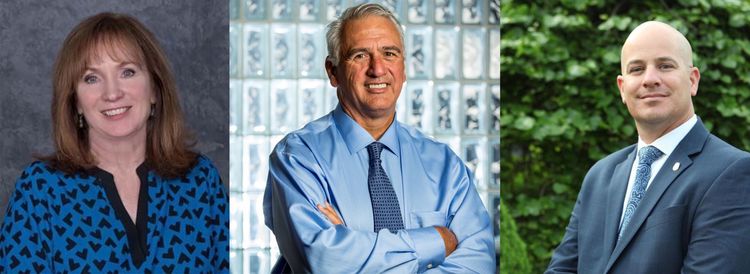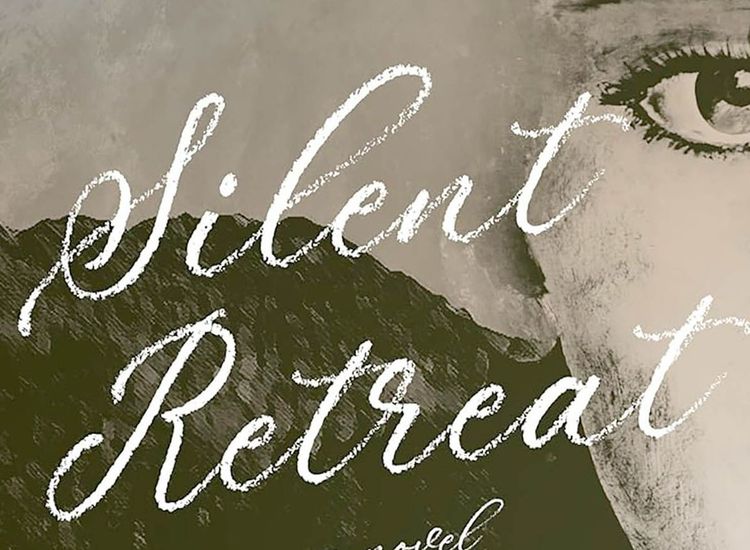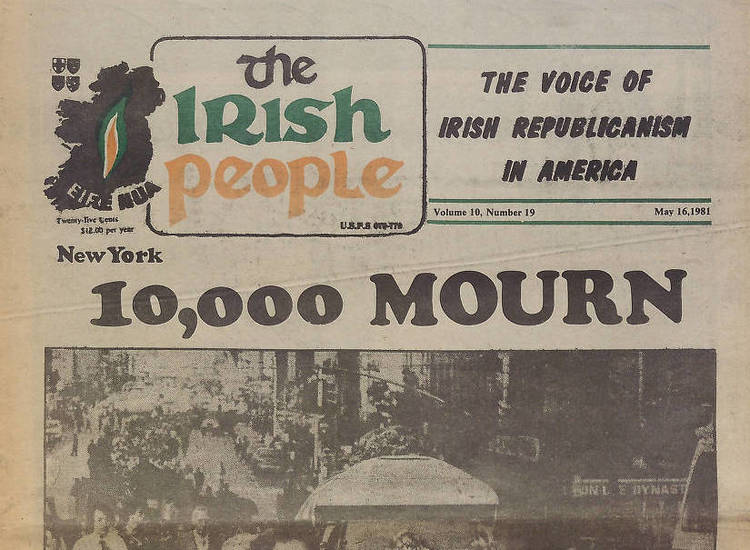Pearl River, N.Y., resident Mary Beth Keane has written a “beautiful novel, bursting at the seams with empathy,” according to one reviewer. PHOTO BY NINA SUBIN
By Peter McDermott
“I’m rattled by it,” said novelist Mary Beth Keane.
“Overwhelmed” is another word she used about the reception for her novel “Ask Again, Yes,” which entered the New York Times Bestsellers list soon after its publication on May 28.
The third book from the Pearl River resident has established her firmly in the ranks of writers of literary fiction with commercial appeal.
“One of the most unpretentiously profound books I've read in a long time,” commented Maureen Corrigan, the book critic for the show “Fresh Air” on NPR. “Keane writes with deep familiarity and precision about the lives of this particular generation.”
The reviewer for Elle described it as a “beautiful novel, bursting at the seams with empathy.”
It’s the 1970s at the outset of “Ask Again, Yes,” when a young NYPD officer moves to the northern suburbs with his spouse. Shortly afterwards, a recently-married colleague buys the house next door.
More than a decade in, a violent event involving both families sets the course of their lives for the years to come.
Keane’s own personal story is less dramatic, but as with most novelists real life serves as an inspiration. In “Ask Again, Yes” the only child in one of the families, a son, forms an early bond with the youngest of the three daughters in the other and that evolves into a “Romeo & Juliet”-like love story. Keane’s romance with her husband likewise began when they were in their early teens.
Another important echo from real life is the fraught relationship she had with her late mother-in-law. “Growing up she was a figure terrifying to me,” she said.
Keane, though, has no family ties to policing. Her father, a native of Connemara, Co. Galway, became a sandhog soon after he arrived in New York in the 1960s, while her mother, who is from Louisburgh, Co. Mayo, worked for the secretarial pool in GM for 20 years, and later as an assistant in the local school system.

Quizzing cops
The novelist added that a lot of her friends’ fathers were cops and today some of the parents of her young sons’ friends are, too.
For “Ask Again, Yes,” which also has characters in the next generation doing police or police-related work, Keane threw herself into research with as much seriousness and enthusiasm as do certain writers of crime fiction.
“Cops have their own lingo, and they’re almost robotic in reporting,” she said of her discussions with police officers.
But over coffee and plates of eggs she worked with their love for telling stories, throwing them off with questions they weren’t expecting, about for instance how they felt in particular situations.
“That was fun,” the novelist said. “Once they started talking about that, I felt I’d achieved something. We were finally getting somewhere.”
In “Ask Again, Yes,” one of the cop neighbors is from Ireland, as is the wife of the other one; but Keane had already written about immigration in her earlier books – “The Walking People” and “Fever” — and had no real desire to the make that an important theme again.
She identified one issue, however, that is front and center in “Ask Again, Yes” — estrangement within families.
Keane said: “It’s come up in each of my books. I don’t do it on purpose. I don’t set out to write another estrangement novel.
“I just know a lot of it. A lot of families I know are estranged from people they shouldn’t be and are. My husband was estranged from his parents for a long time. It was a difficult relationship growing up.
“What could happen that you would not talk to your own child?” she asked. “This is the person who made you or the person you made. I can’t imagine it.
“But I meet some many good, decent people who seem to have no relationship with their child or their mother. I mean it’s one thing to bicker. Everybody does. But to have absolutely no relationship is something I can’t stop thinking about,” she said. “I thought I’d think of it less as I got older; instead I think of it more. I guess the books are some sort of exploration of that.”
Reflecting on ‘home’
Keane’s husband grew up in a neighboring town, not a neighboring house as in the case of the novel’s Kate Gleeson and Peter Stanhope. But the families knew of each other, being part of the same tight-knit immigrant community.
Asked if she believed being a first-generation American might be a different experience to being second-generation, the novelist said: ‘I think it must be.”
She said: “Growing up we only ever spoke of ‘home’ as meaning one place. Sometimes I felt that we were more Irish than my cousins in Ireland in that they didn’t have to talk about it all the time. They were not reflecting on the country they were standing in the way we were across the ocean.”
And being the child of immigrants, she’s “conscious of class in a way that my kids just won’t be, I don’t think.”
Keane said: “It always confused me when people [in America] used the words ‘smart’ and ‘educated’ interchangeably when the smartest people I knew growing up were not educated at all.
“That’s something that keeps coming in my fiction, too,” she added, “I want to beat a drum about that.”
Religion, too, is something that’s very often inextricably linked with ethnic identity.
In an essay in Vogue last December, Keane said that she and her husband “were both raised in strict Irish Catholic households.” Although they had since become “casual Catholics,” attending Sunday Mass only occasionally, there was a comfort in having their sons, ages 10 and 7, “do the same things I did, the same thing my sisters did, my cousins” (the younger child particularly likes, she revealed, a collection of Bible stories given to him by her mother).
All of that seemed manageable enough until the Cardinal McCarrick scandal last summer was quickly followed by revelations of the cover-up of widespread sexual abuse in Pennsylvania over a 70-year period.
Keane felt that none of this was addressed at the parish level in any serious way. Instead, “grown men and women with jobs and mortgages and a plethora of worries get spoken to like we’re still a group of children wearing our school uniforms.”
Deciding the stakes
She told the Echo: “I could not take it for one more second.”
In the Vogue piece she wrote, “I can do the one thing within my power: leave and take my children with me. Maybe if more leave, and those pews (and coffers) are finally empty, then the Church will do a more sincere self-examination.”
Keane has been taking stands from an early age. Perhaps the most important was over her relationship with her future spouse.
“We’ve always said if we hadn’t had such strong objections from both families, we probably wouldn’t be together. But because we weren’t allowed to see each other most of the time,” she remembered, “we sort of doubled down early and we had to decide what the stakes were and what we were willing to do.”
Not that it was all plain sailing between them: “We did break up a lot,” she said
Her parents objected not to the boyfriend. They liked him, and still do. “I think my mother now loves my husband more than me,” Keane said, with a laugh.
It was the situation they didn’t like.
“They knew it was trouble, [and] that maybe it would be more trouble in the future.
“His mom, she hated me in a very vocal way. She used to tell other people what she thought of me.”
And so her parents' response was, “She’s too young, it’s not worth it.”
Their view was: “Surely there’s another handsome boy that I could like more?”
“Out of stubbornness, probably, I decided there was not,” she said.
The writer said she would “encounter” her future mother-in-law rather than meet her.
The woman would say, she recalled: “‘Stay away from my son,’ in saltier language and sometimes I wouldn’t have seen him in weeks or months.”
Keane said, “It [the novel] is certainly inspired by how I felt and how my husband felt.”
Creating sympathy
The character Anne Stanhope suffers from mental illness; the novelist can’t say, more than 25 years after the start of her relationship with her husband, that that was the case with her mother-in-law
“I didn’t know her,” Keane said. “I don’t know what was going on there and my husband moved apart from them early enough. He doesn’t really know either.”
The novelist came to understand that she would have “to get inside Anne’s head if I wanted to create real sympathy for her.”
She knew early on, she said, that Anne would swap roles with her husband Brian — that he would be the more selfish while she was suffering.
“I avoided that for almost a whole draft,” she recalled, “And then realized I could not write the book that way.”
Tackling it and portraying it accurately wasn’t easy, not least because she knew from research the same diagnosis doesn’t present in the same ways in different people.
Ultimately in her story-telling, critics and readers agree, the novelist allows Anne to be viewed in a fully-rounded way and in terms of forgiveness and redemption.
Fellow novelist Matthew Thomas has called “Ask Again, Yes” a “sensitive meditation on mental illness.”
As for her late mother-in-law, she knows that she was a mother who held her baby son and there are grandsons now she never met.
“It’s hard not to have sympathy for a person,” Keane said.
Peter’s paternal uncle was a more straightforward proposition in the creative process. “George was my favorite character to write,” she said, adding that he’s similar to people she’s known throughout her life.
“He’s not perfect. He had his own demons and his own problems,” Keane said, “but when the time came to be better, he was better.”
Might she return with another novel about a family?
“I don’t know. I’m interested in a big fat long book,” she said. “That seems to be a worry on the publishers’ end, but I love a book you can sink into and figure out on your own why people are they way they are.
“And the big family novels are the best place to do that,” Keane said.









